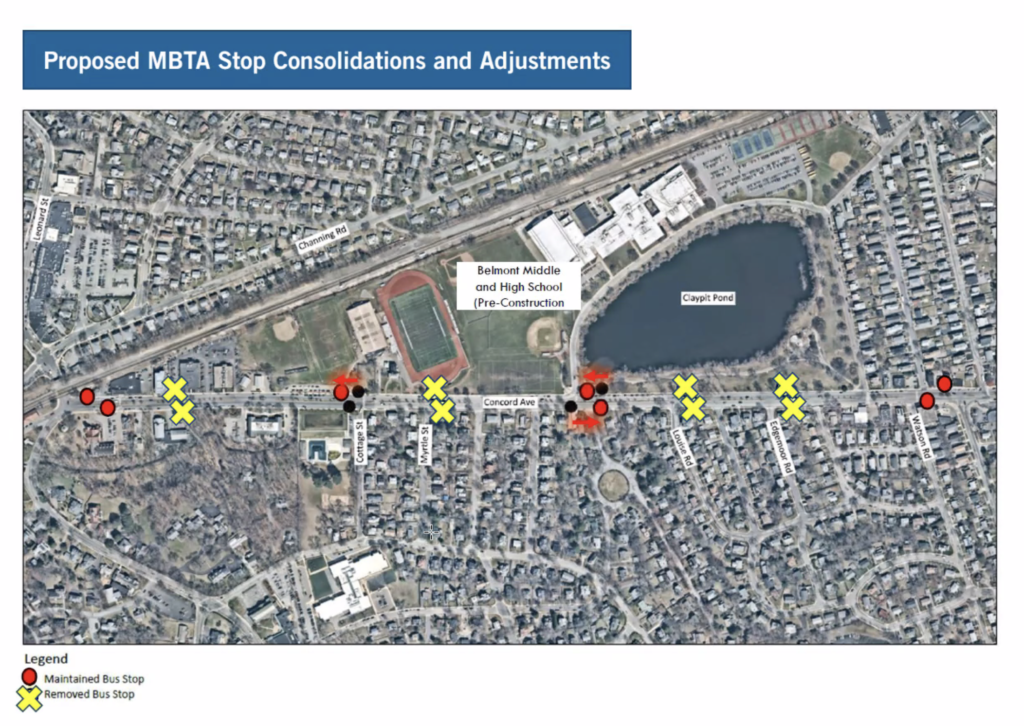Photo: Belmont welcomes back masks to town
Beginning Wednesday, August 4, visitors and employees in town offices and buildings will be required to wear a mask as Belmont responds to a recent surge of positive cases of Covid-19.
“It’s erring on the side of being cautious. It’s the best thing for the public health and safety of everybody,” said Health Board Chair Donna David as the Select Board approved the sudden return to a mandate after speaking to health and town officials at its Monday meeting. In addition, public meetings will revert back to being held via Zoom or other virtual software.
At this time, there is no scheduled date for the mandate to end.
On Friday morning, Aug. 6, the town’s health and select boards will hold an emergency meeting to discuss expanding the indoor mask mandate to local stores, offices and restaurants. While the town building mandate was a straightforward call, the Select Board appeared less eager to re-establish a full town-wide indoor mask requirement.
“I think the business community’s going to be really upset with us” if masks make a return, said the Select Board’s Mark Paolillo.
It appears Belmont’s schools will continue requiring masks indoors at the district begins the new school year in mid-September, according to Donna David, chair of the Health Board. “They are onboard,” she said.
Adam Dash, chair of the Select Board, told the meeting that in the past when cases were on the rise the town had followed closely recommendations from the state’s health department on mask “but now the state’s basically saying ‘it’s on you’. So here we are.”
At Monday’s meeting, Health Department Director Wesley Chin told the Select Board that after going more than three weeks without a case in early summer, the town has seen 20 Covid cases since July 4, half of which are “breakthrough” cases; when an individual tests positive after they’ve been fully vaccinated against the disease.
“So far, we’ve been lucky we haven’t had any hospitalizations or deaths with these breakthrough cases,” said Chin, noting that those exposed were in their 40s and 50s and relatively healthy. While Belmont has not entered the state’s designated “red” zone of new cases, David said it is moving into that range, with the added complication that within the next three weeks, children – many under 12 and unvaccinated – will be returning to town from family vacations and trips as they settle in before heading back to school.
David said since it has made a “very strong” recommendation to the School Committee to continue its mask mandate, he said her board was “pretty much in alignment that [masks] should extend to the town buildings and offices, whether you are vaccinated or not.”
The reason for being vigilant even with a majority of adults being vaccinated, said David, is due to what is being learned about the variant on a daily basis.
“Each day unfolds new information in terms of the viral load and how it spreads to others,” she told the board. “If you’re at work and you’re exposed and asymptomatic and take it home to your unvaccinated child or somebody who’s immunosuppressed.”
Paolillo said he would support masks for workers and those visiting town-owned facilities “as a way of protecting our employees” especially since the town will not ask who is vaccinated inside a building.
While Town Administrator Patrice Garvin had hoped to give the employees a level of expectation of when the order may cease, it will be up to the Health Board working closely with the town to determine when the mandate will end.
